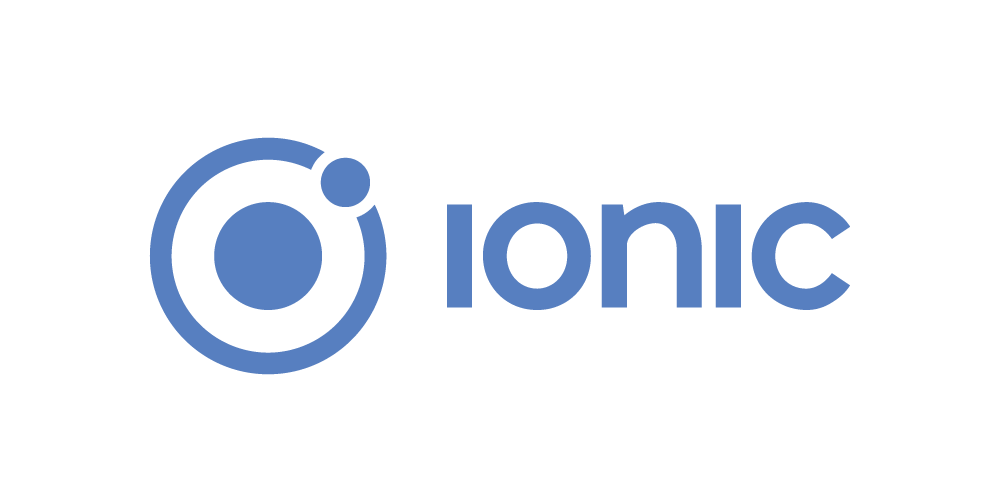Ionic Framework - The efficient solution for cross-platform mobile applications
In today's digital world, mobile applications have become essential for businesses. However, with a variety of devices and operating systems, developing cross-platform mobile apps is a challenge. This is where the Ionic framework comes into play. In this article, we'll give you a comprehensive overview of the technology and show you how it can be used to develop powerful and efficient mobile applications.
What is the Ionic Framework?
The Ionic Framework is an open-source software development kit (SDK) that allows developers to create high-quality mobile apps for various platforms, including iOS, Android, and the web. Developed by Drifty Co. in 2013, the Ionic Framework has quickly become one of the most popular technologies for cross-platform mobile app development.
Ionic is based on web technologies such as HTML, CSS and JavaScript and allows developers to create applications for multiple platforms using a single code base. It provides access to native mobile device features such as camera, GPS, and contacts through Cordova plugin integration. Moreover, Ionic leverages the AngularJS framework to provide a structured and scalable architecture for app development.
The advantages of the Ionic framework
- Cross-platform development: with Ionic, developers can use a single codebase for iOS, Android, and web apps. This saves time and resources that would otherwise be spent developing separate apps for each platform.
- Cost-efficiency: Since Ionic is based on open source technologies, there are no licensing costs for using the framework. In addition, the common code base reduces development time and costs.
- Powerful and scalable: Ionic provides a robust and scalable architecture for application development. It uses AngularJS for structuring application logic and provides powerful UI components for designing engaging user interfaces.
- Access to native device features: By integrating Cordova plugins, Ionic enables access to native device features such as camera, GPS, contacts, and more.
- Active community and extensive resources: The Ionic framework has an active and engaged community that regularly provides new plugins, tutorials, and support for developers.

Use cases for the Ionic Framework
Use cases for the Ionic Framework
E-commerce applications
Ionic is ideal for developing e-commerce applications because it offers a variety of UI components and integrations with payment providers such as PayPal and Stripe. Businesses can create user-friendly and secure shopping experiences for their customers.
Social networking and communication applications
Ionic enables the creation of social networks and communication apps that work seamlessly across multiple platforms. With Ionic, developers can easily integrate features such as user profiles, chats, groups, and push notifications.
Geolocation-based applications
Thanks to the integration of Cordova plugins, developers can use Ionic to create location-based applications based on the user's GPS data. This enables the development of applications such as navigation systems, location-based recommendations, and tracking solutions.
Education and learning applications
The Ionic framework is suitable for developing educational applications that work across multiple platforms and devices. With its powerful UI components, developers can create engaging and interactive learning experiences for students and teachers.
Enterprise applications
Ionic provides an efficient solution for developing enterprise applications such as CRM systems, project management tools, and employee portals. The common code base allows companies to quickly and cost-effectively deploy their applications to multiple platforms.
Best practices for development with the Ionic framework
Best practices for development with the Ionic framework
Using the AngularJS architecture
Take advantage of the AngularJS architecture to develop a structured and modular application. This enables better maintainability and scalability of your application.
Optimize performance
Take care of your application's performance by avoiding unnecessary dependencies, optimizing code, and using resources efficiently.
Integrate native device features
Leverage Cordova plugins to gain access to native device features and ensure a seamless user experience across multiple platforms.
Test on different devices and platforms
Ensure that your app is tested on different devices and platforms to identify and fix potential issues and incompatibilities early on.
Leverage Ionic community resources
Leverage the extensive resources provided by the Ionic community, such as tutorials, plugins, and support, to expand your capabilities and speed up development.
E-commerce applications
Ionic is ideal for developing e-commerce applications because it offers a variety of UI components and integrations with payment providers such as PayPal and Stripe. Businesses can create user-friendly and secure shopping experiences for their customers.
Social networking and communication applications
Ionic enables the creation of social networks and communication apps that work seamlessly across multiple platforms. With Ionic, developers can easily integrate features such as user profiles, chats, groups, and push notifications.
Geolocation-based applications
Thanks to the integration of Cordova plugins, developers can use Ionic to create location-based applications based on the user's GPS data. This enables the development of applications such as navigation systems, location-based recommendations, and tracking solutions.
Education and learning applications
The Ionic framework is suitable for developing educational applications that work across multiple platforms and devices. With its powerful UI components, developers can create engaging and interactive learning experiences for students and teachers.
Enterprise applications
Ionic provides an efficient solution for developing enterprise applications such as CRM systems, project management tools, and employee portals. The common code base allows companies to quickly and cost-effectively deploy their applications to multiple platforms.
Using the AngularJS architecture
Take advantage of the AngularJS architecture to develop a structured and modular application. This enables better maintainability and scalability of your application.
Optimize performance
Take care of your application's performance by avoiding unnecessary dependencies, optimizing code, and using resources efficiently.
Integrate native device features
Leverage Cordova plugins to gain access to native device features and ensure a seamless user experience across multiple platforms.
Test on different devices and platforms
Ensure that your app is tested on different devices and platforms to identify and fix potential issues and incompatibilities early on.
Leverage Ionic community resources
Leverage the extensive resources provided by the Ionic community, such as tutorials, plugins, and support, to expand your capabilities and speed up development.
The Ionic framework is a powerful and efficient solution for cross-platform mobile app development. With its common code base, integration of native device features, and active community, it offers developers a wide range of options to create engaging designs.
